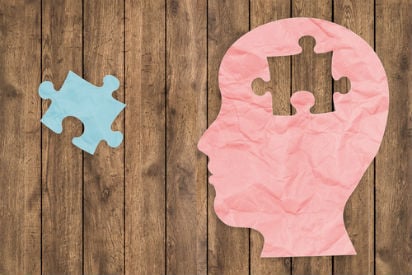Self-awareness is an extremely pivotal trait to possess in life, and way too often we overlook its value. When you become self-aware, you become conscious of your problems and emotions. And the sooner you are aware of those, the sooner you can work toward fixing them.
Being self-aware forces you to slow down and observe yourself, like an outsider. We get so caught up in our actions, thoughts, opinions and feelings that we forget to make sense of it all. We forget to take a step back, to dig a little deeper into who we are. We forget to ask ourselves important questions:
- Why did I react that way?
- Why does that specific thing bother me so much?
- Why haven’t I gotten over that breakup yet?
- Instead of accepting every little thing that goes through our mind, why don’t we ask ourselves about it a little more?
Of course there’s a fine line between good mindfulness and bad. Being hyper-conscious of yourself, your actions and how others perceive you has a familiar name: anxiety.
You don’t want to be anxious, insecure and overly critical of yourself in a desperate attempt to be self-aware. Allow yourself to have a clear and tolerant understanding of who you are.
A good form of self-awareness shouldn’t be damaging. It should be healing, enlightening, uplifting. Self-awareness is not obsessive and harmful overthinking. It is being able to recognize an aspect of your being and use that information in a beneficial way.
Self-Awareness Helped Me Become Less Fearful
When you are cognizant of who you are, you have an easier time coming to conclusions and making vital connections and discoveries. I am an extremely fearful person, and not only about real threats. I fear zombies and monsters and paranormal entities, all things I know don’t exist.
This was a reality I accepted for a long time because I didn’t take a moment to become curious about it. And that’s where self-awareness sparks from: curiosity about who we are.
It wasn’t until I went to therapy that I thought to actually question why I’m that way instead of accepting it. Self-awareness was the first step toward my cure. When I became paralyzed with fear, unable to step outside my bathroom door in fear of what was lurking on the other side — instead of succumbing to it — I stopped and pondered:
Why the hell am I so scared? What is it I’m scared of? I know those things don’t exist, so why are they still making my heart race? Do I not feel safe for some reason? Am I taking one issue of my life and allowing fear to be its vehicle?
When I became curious about my fear, that’s when it would dwindle. That’s when I would feel like I had a handle on my issues.
Therapy Is the Quickest Path to Self-Awareness
Because of therapy, I understand myself much better than before. I understand how my mind works, where my emotions come from, why I’ll act on certain things and not others. By knowing who I am, it makes it easier to heal, to learn lessons.
For the longest time I thought my fear was unreasonable, silly, arbitrary. But once I knew myself better, I discovered it wasn’t any of those things. It was the opposite: There was an understandable reason why certain things frightened me. And the more you understand about yourself, the more you understand about other people; the more you can sympathize and empathize; the more insight you gain into problems and their solutions.
With mental illness, being mindful can be especially hard. You might suffer from depression but feel frustrated because you can’t wrap your head around why you have depression. You put blame on things, find scapegoats, make excuses without knowing what’s going on in your head.
Having a mental illness can sometimes feel like a phantom making decisions for you. You know you have to get out of bed and go to work, but some mornings your depression makes you feel like you physically can’t. Your nagging anxiety about work can keep you from enjoying yourself and relaxing when you get home each evening.
You don’t want these things to affect your daily life, but they do. They have an invisible yet powerful hold over you.
But you can come to understand these things and feel as though you actually wield some power over it. By understanding who you are and how your mind works, you become the powerful one, not your illness.
Therapy can help you get to that point, and will keep you on the right path. Therapists are your coaches, making sure you exercise your mindfulness regularly and appropriately. They will hold your hand while you explore your emotions and actions, your past and present, all while getting to know yourself. And getting to fully know who you are is a beautiful, cathartic thing.
Kelly Bishop is a blogger for Thought Catalog, Elite Daily and The Huffington Post
Talkspace articles are written by experienced mental health-wellness contributors; they are grounded in scientific research and evidence-based practices. Articles are extensively reviewed by our team of clinical experts (therapists and psychiatrists of various specialties) to ensure content is accurate and on par with current industry standards.
Our goal at Talkspace is to provide the most up-to-date, valuable, and objective information on mental health-related topics in order to help readers make informed decisions.
Articles contain trusted third-party sources that are either directly linked to in the text or listed at the bottom to take readers directly to the source.




